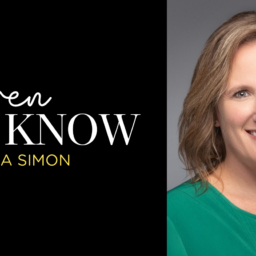
One million women have left the workforce since February 2020, according to the U.S. Chamber of Commerce. Work-related stress and lack of childcare are two of the leading reasons. In 2021, research showed that one in three women considered leaving or changing their careers due to burnout, and nearly 60 percent of parents couldn’t find or afford childcare that met their needs.
Indy Maven spoke with Amy A. Matthews, a partner at Church Church Hittle + Antrim in the School and Education Law Group, and Chandler Lawson Flynn, an associate at the firm, about how employers can support women professionally and personally — in and out of the workplace.
How can an employer better understand the issues and challenges that women in their workplace experience in both their professional and personal lives?

Matthews: In 2022, the lines between work and life are blurred so much with people working everywhere geographically with technology. For a lot of us, we’re taking care of ourselves and our career. We’re taking care of our kids. We’re taking care of our aging parents. Work is one piece of that puzzle as a person. Reset the expectations and start to think about acknowledging and taking care of the whole person.
Lawson Flynn: We had a retreat this last year, and a lot of our programming was very much about bringing your whole self to work and being who you are. Other companies can definitely take note of the celebration of diversity and different interests. They can be intentional in ensuring that people feel safe at work and are heard and that there’s equitable advancement, and that there’s mentorship or opportunities to get involved in the community or with clients. One of the most important ways to get women to feel like they belong and not be burned out is that they can feel they don’t have to leave everything at the door before walking in and just focus on work. Being celebrated for who you are and feeling safe to bring all of those things through the door every morning.
What can an employer do to foster an environment where women are valued, respected, and are encouraged to voice their ideas and opinions, especially if women aren’t the majority in the workplace?
Matthews: If you have cliques, dismantle them. If you have an all-boys’ club, say: “No more. This is not how we’re doing things … These are the new expectations. We want your experience, and we want what you have brought to the table. But, if you’re not on board with making everyone feel welcome and providing opportunities, then you don’t belong here anymore.”
Lawson Flynn: There have been times at previous employers, especially earlier in my career, where I would walk into a room where there would be older men who would say and assume that I was taking the notes, or I was getting the coffee. It goes back to the intention of ensuring that all team members take active steps to make sure that type of treatment doesn’t happen anywhere in our organization.
What support can employers offer that will help the women in their workplace grow professionally and personally?

Lawson Flynn: Access to mental health care through providing your employees with insurance or coverage of medical costs. Especially with women and the various roles that they play at home, at work, and in society as leaders — that access to mental health care, to know that’s not coming totally out of your pocket, those policies and benefits — that really helps retain women in the workplace.
Matthews: Parental leave. People forget that parental leave isn’t just about the parents. It’s really about the kids bonding with their parents, so it’s good for the whole family. When you have a new child, whether it’s the first child or a later child, it changes the dynamic of the home life. Allow an employee to get used to, “This is my new normal,” and not feel like, “I’ve got to handle work at the same time I’m learning this new normal.” That’s going to lead to continuity for the employee.
Think about it as a very common stage of life — people having new children, and that can either be fostering or adoption. Any time a new child comes into a home, it changes that dynamic. Having that ability to establish the new normal, take a breath from work and come back hopefully refreshed, reset, and ready to continue their career rather than thinking about being overstressed or not being able to handle it and having a mental health issue that you may not be able to recover from. It sends the message to everyone that the organization values family and the whole person.
It can feel intimidating for both men and women to have conversations with their employers about the challenges they’re facing in the workplace. How can an employer let their employees know this kind of conversation and vulnerability is welcomed and that they’re able to offer support?
Matthews: For people to truly feel comfortable, it’s not telling people that on a magic date going forward, we’re going to be more aware of our employees’ well-being and have an open-door policy. It’s more about everyday interactions in building relationships and that the people you have in leadership are doing those things, regardless of sex or gender. It’s empathy and being kind to the whole person.
I can’t say enough that it comes down to getting the people who are going to embody the values that you want. Say to the folks you have, if the culture isn’t that way, that it’s got to change. See if they change, and if not, you’ve got to get different people who want to be there. You have to find them and let them know you’re being deliberate about making sure that the culture is very consistently positive and welcoming to everyone.
What are small acts that an employer can do each day to build supportive working relationships with women in the workplace?
Lawson Flynn: Women are, I find, very emotionally invested in their colleagues and their mentees, so I think statistically they do burn out at a higher rate than men because they’re caregivers even in the workplace. Here [at CCHA], men have stood up and taken that responsibility to share that mentorship load, whether it be officially or unofficially. We’re really tuned into that. That’s something that other companies can be more intentional about as well.
As women and attorneys at Church Church Hittle + Antrim, in what ways do your colleagues and your work environment help you feel supported and empowered each day?
Matthews: On a daily basis, someone is going to help you with whatever you need. If you’re trying to set up a conference room, no one is going to say that’s not their job. There is no concept of “that’s not my job” here, all the way up to the managing partner. The managing partner would make the coffee if that’s what needed to be done.
Everyone values friendship. Even if there are people that you aren’t as close to because you don’t share their interests, you’re going to be kind, respectful, and supportive of each other, and have it be a true team, not competitive or antagonistic. Everybody has each other’s backs. In the good times, you celebrate, and then in the bad times, you cry together. All of it is accepted.
Lawson Flynn: I moved here in April 2020 from Tennessee, so I knew essentially no one other than my husband’s family in Indiana. It was so important to me that I was able to be in a workplace where I could be friends with my coworkers and that they were checking in on me with a text that they are thinking of me, knowing I’ve had a hard time.
Just the other day, Amy said to me, “I’m putting these issues that are going on in your life on my prayer list, and I’m praying for you.” I can check in with questions or for some advice or feedback. I know that time is going to be carved out, so I can chat about those things with leadership or other associates I’ve developed really great friendships with. These aren’t just colleagues to me. These are people who are my friends who I love working alongside. People at work are wanting to know about how your people are and how your life is, and that’s really sweet.
Nicole Thomas is a writer and digital marketer who loves cozying up with a book and cup of coffee. When she’s not reading or writing, you can usually find her crocheting another sweater or cardigan for her wardrobe. You can find her on LinkedIn or Twitter.
All of our content—including this article—is completely free. However, we’d love it if you would please consider supporting our journalism with an Indy Maven membership.





















